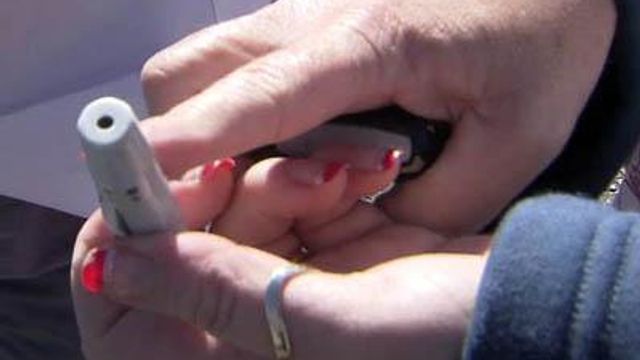State: Unsafe practices likely spread hepatitis at assisted living center
State public health officials on Friday said a fatal hepatitis B outbreak at a Wayne County assisted living center likely occurred when staff used the same blood-glucose monitors on different residents.
Posted — UpdatedFive residents of Glen Care of Mount Olive who have died since August had hepatitis, while three other residents contracted the disease but survived, according to state officials. The deceased ranged in age from 63 to 83.
Investigators with the Division of Public Health said all eight underwent blood-glucose monitoring at the center, and residents who have diabetes were 15 times more likely to be involved in the outbreak than other residents.
The investigators said Glen Care staff sometimes stored glucose monitors together and didn't label them with residents' names. The devices also weren't disinfected after each use, according to investigators.
"If you get contamination that isn't even visible on the glucometer, that can get on the glove (or) get on the lancing device (and) then be introduced in the person," said Dr. Megan Davies, North Carolina's state epidemiologist.
Hepatitis B is a contagious virus that can cause severe liver problems, and it is typically transmitted by exposure to blood or body fluids. Symptoms include fever, extreme fatigue, loss of appetite, vomiting, dark urine and yellowish skin.
The state recommended that Glen Care store glucose meters in residents' rooms, disinfect them after each use and switch to single-use needles for the devices.
Glen Care officials said Thursday that the center's staff wasn't responsible for the hepatitis outbreak. Medical technicians said they had never used glucose monitors on different patients.
"I don't believe these loving, caring people shared the same pen on different patients," said Anne Kornegay, vice president of Kornegay Healthcare, which owns the assisted living center.
Kornegay suggested the outbreak was caused by people coming in from outside or by residents sharing drinks or having sex.
State investigators said they couldn't determine the source of the outbreak, noting the center is open to relatives and other visitors and that residents are free to come and go.
Davies called the situation tragic and said Glen Care needs to strengthen its infection-control practices.
The state Division of Health Service Regulation has already issued a six-point corrective plan to Glen Care for infection control. By Nov. 19, the facility must appoint a staff member to coordinate infection-control measures at the facility, provide staff training on proper procedures and have a registered nurse or pharmacist observe blood-glucose monitoring of patients at least once a week.
Glen Care officials said they already have infection-control measures in place, but in response to the state's corrective plan, they said they now wash their medical instruments with a bleach solution instead of just soap and water.
All residents at the center were tested for hepatitis B in October, health officials said, and 27 people who weren't immune to the virus were vaccinated.
A separate state investigation will determine how Glen Care will be penalized. Based on preliminary findings, the center could be fined between $1,000 and $20,000 for each violation.
• Credits
Copyright 2024 by Capitol Broadcasting Company. All rights reserved. This material may not be published, broadcast, rewritten or redistributed.





